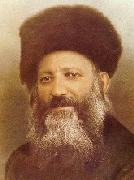
In this chapter, the psalmist speaks of terrible suffering and pain - suffering so terrible, that he feels he must forcibly 'muzzle' his mouth to restrain himself from questioning God's justice in the world. In desperation, he beseeches God: when will it end?
"O God, inform me of my end! What is the measure of my days?" [Psalms 39:5]
According to the Talmud [Shabbat 30a], God did not accede to this request. "I have decreed that the end of flesh and blood is not knowable." King David tried a second time. "Then what is the measure of my days?" But again God replied, "I have decreed that the measure of one's days is not knowable."
Why did David ask twice? What is the difference between knowing one's end and the measure of one's days? And what is the reason for this heavenly decree that we may never know when we are to die?
Our Physical End
Theoretically at least, there are two ways in which we should be able to determine the end of our lives. The first method would be to calculate our lifespan by carefully examining the various organs of the body, all of which can only function for a finite period of time. Either through scientific or prophetic knowledge, we should be able to accurately predict how long we will live according to the functioning and usage of our bodily organs.
God, however, created the world so that the factors affecting our physical powers are varied and complex to such a degree that it is impossible to determine when the body will cease to function. In response to David's first request, "Inform me of my end," God replied that "the end of flesh and blood is not knowable" — specifically referring to the duration of our physical side.
Why is this knowledge not granted to us? If people could calculate the length of their lives, then corrupt individuals would feel free to use their allotted years to commit immoral acts, secure in their knowledge of future years to come. Without such assurances, on the other hand, there is a certain measure of vulnerability that weakens evil inclinations. Even if the wicked in their arrogance refuse to admit it, the truth is that this ambiguity serves to enervate evil, thus limiting the forces of cruelty and immorality.
Measuring Our Days
There is, however, a second way that should allow us to determine the length of our lives. This method is a more elevated path, requiring great wisdom. Stated simply, all things are placed in the universe for a set purpose. Since they exist for this purpose, they will last only as long as they need to accomplish their specific goal. This is certainly evident for those matters which are merely a means towards a higher level. Once they achieve their goal, they are no longer needed.
Each of us has a particular mission to fulfill in this world. When King David asked, "What is the measure of my days?" he was referring to this loftier method of estimating one's lifespan. The phrase "a measure of days" should be understood like the Torah's description of Abraham's full and accomplished life — "ba beyamim" - "advanced in days" [Gen. 24:1]. If we could attain clear knowledge of our mission in life, knowing the actions that we need to perform, then we should be able to determine the length of our lives in this world.
Unlike the first method, an investigation of this nature would certainly bring many ethical benefits. Whenever people reflect on the ultimate purpose of their lives within the framework of God's providence, this contemplation allows them to transcend their baser desires, and prepares them to serve God and work selflessly towards spiritual perfection.
For this reason, David thought that this method of measuring one's days would meet with divine approval. But once again, God denied his request. For the Creator of the human soul knows that the best path for human development is precisely through a life lived with uncertainty as to the length of its days.
Necessary Ambiguity
This inherent ambiguity helps balance the world between "do not be too evil," a danger for the masses, and "do not be too righteous" [Ecc. 7:16-17], a risk for the spiritual elite. Just as foreknowledge of one's future years could lead an immoral person to unrestrained levels of evil, so too, clear knowledge of one's spiritual mission could lead the spiritually sensitive to a life devoid of anything outside the narrow realm of his spiritual goals.
The physical world is also part of creation, and needs to be built up and prepared for its divine purpose. If everyone cared only about spiritual matters, the world's physical development would be neglected.
Thus, both of these divine decrees — not knowing the lifespan of our physical bodies, and not knowing our spiritual goals — combine together to protect the world from these two extremes: excessive evil and excessive piety.
[adapted from Ein Aya vol. III pp. 89-90]

